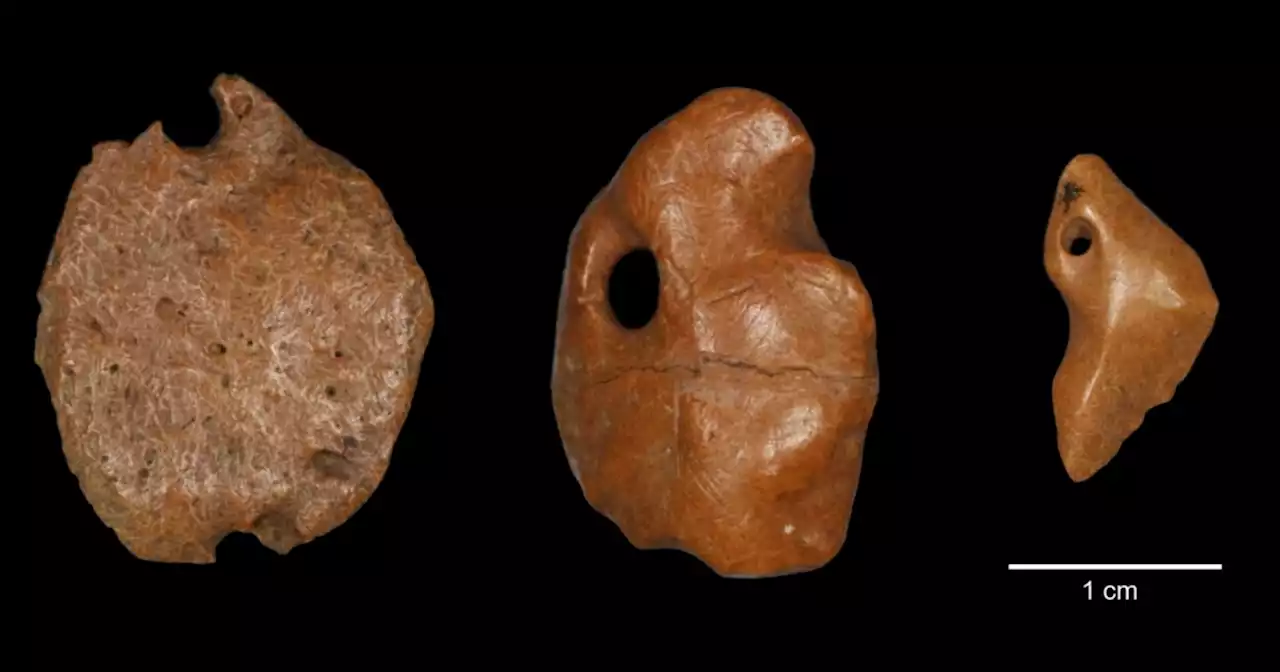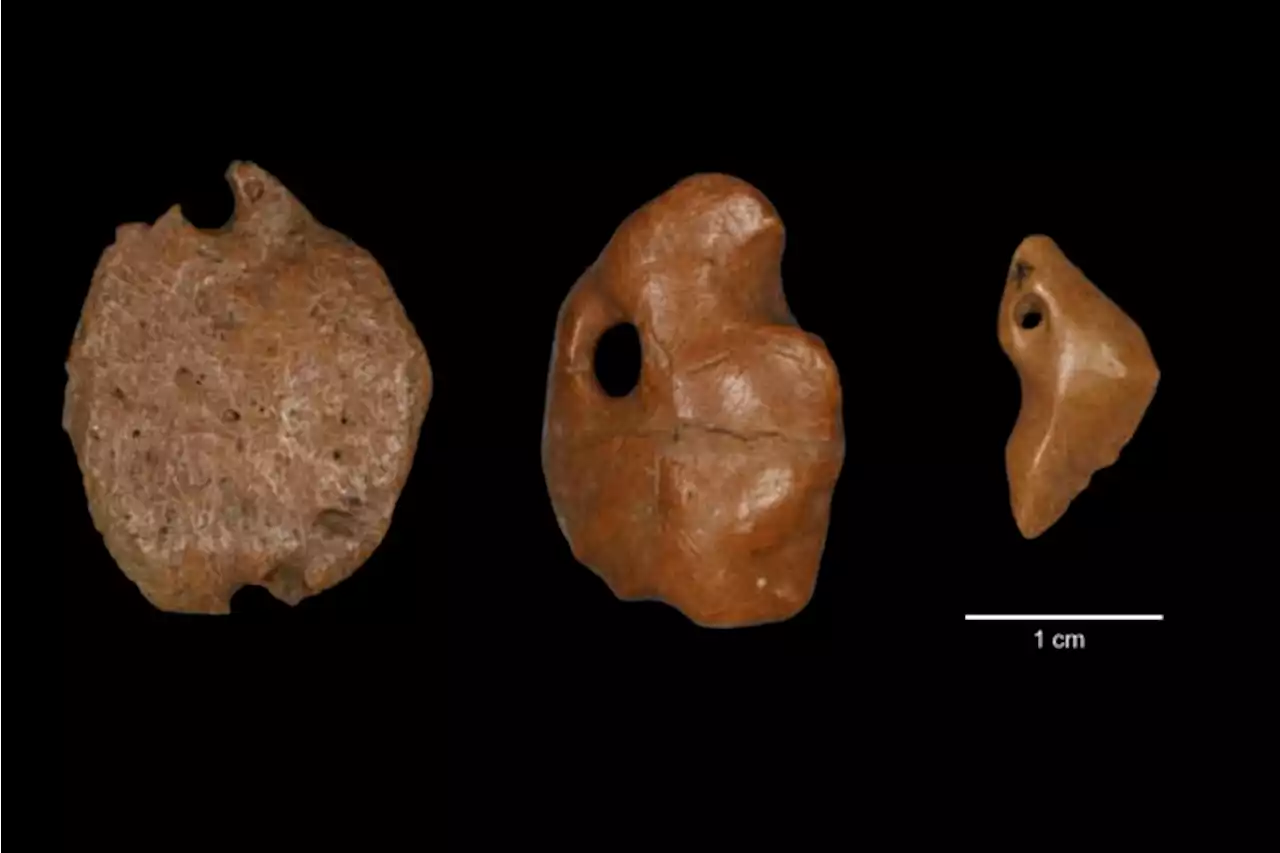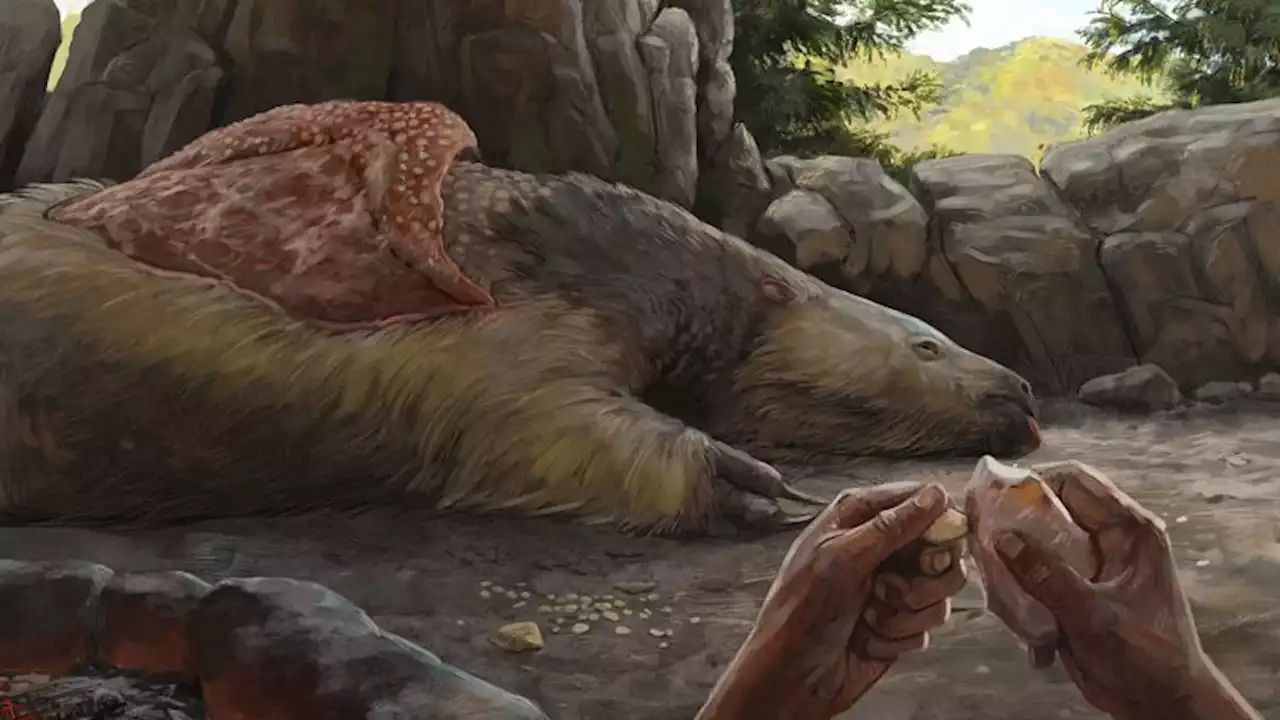Three giant sloth bones found in Brazil were likely perforated and polished by human hands in order to be used for personal adornment — probably as pendants, according to a new study
Three giant sloth bones found at Santa Elina rock shelter in central Brazil were likely perforated and polished by human hands in order to be used for personal adornment — probably as pendants, according to a new study.
A herbivore with long clawed arms designed for digging, the creature would not have preyed on humans. “Although they had a low metabolism, they were agile animals that walked predominantly on all fours, although they could stand up . We cannot say if humans saw these animals as threat,” Pansani said via email. Analysis of sediment and bones The pendants haven’t been directly dated because the researchers didn’t want to damage the extremely rare artifacts.
Malaysia Latest News, Malaysia Headlines
Similar News:You can also read news stories similar to this one that we have collected from other news sources.
 Giant sloth pendants suggest people arrived in the Americas thousands of years earlier than thoughtNew research suggests humans lived in South America at the same time as now extinct giant sloths, bolstering evidence that people arrived in the Americas earlier than once thought.
Giant sloth pendants suggest people arrived in the Americas thousands of years earlier than thoughtNew research suggests humans lived in South America at the same time as now extinct giant sloths, bolstering evidence that people arrived in the Americas earlier than once thought.
Read more »
 Pendants made from giant sloths suggest earlier arrival of people in the AmericasNew research suggests humans lived in South America at the same time as now extinct giant sloths, bolstering evidence that people arrived in the Americas earlier than previously thought.
Pendants made from giant sloths suggest earlier arrival of people in the AmericasNew research suggests humans lived in South America at the same time as now extinct giant sloths, bolstering evidence that people arrived in the Americas earlier than previously thought.
Read more »
 First Mover Americas: GBTC Discount Narrows to Lowest Since May 2022Grayscale's $GBTC discount to NAV fell to as low as 26% at one point last week – the trimmest level since May 2022 – and currently sits at about 27%, according to data from Ycharts. LedesmaLyllah and godbole17 report in First Mover Americas
First Mover Americas: GBTC Discount Narrows to Lowest Since May 2022Grayscale's $GBTC discount to NAV fell to as low as 26% at one point last week – the trimmest level since May 2022 – and currently sits at about 27%, according to data from Ycharts. LedesmaLyllah and godbole17 report in First Mover Americas
Read more »
 18,000-year-old shelter may be the oldest evidence of human occupation in the AmericasPreviously, scientists discovered teeth remains of ancient mammals from the Pleistocene epoch.
18,000-year-old shelter may be the oldest evidence of human occupation in the AmericasPreviously, scientists discovered teeth remains of ancient mammals from the Pleistocene epoch.
Read more »
 Racism underlies disparities in maternal mortality in Americas -UN reportHigh rates of pregnancy-related deaths among women of African descent in North and South America are likely due largely to racism in the form of verbal and physical abuse from health care providers, denial of quality care, and refusal of pain relief, a U.N. report found.
Racism underlies disparities in maternal mortality in Americas -UN reportHigh rates of pregnancy-related deaths among women of African descent in North and South America are likely due largely to racism in the form of verbal and physical abuse from health care providers, denial of quality care, and refusal of pain relief, a U.N. report found.
Read more »
